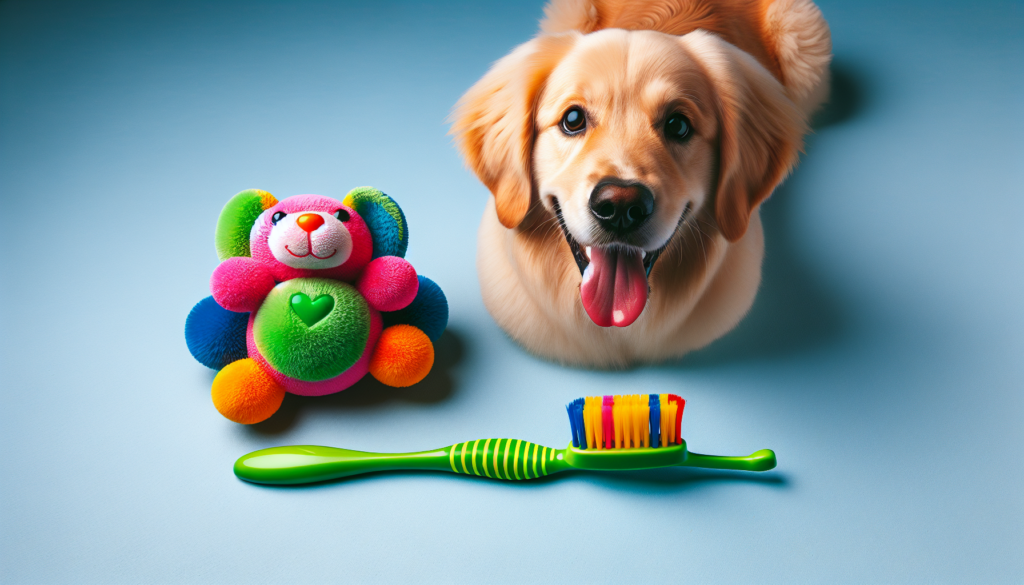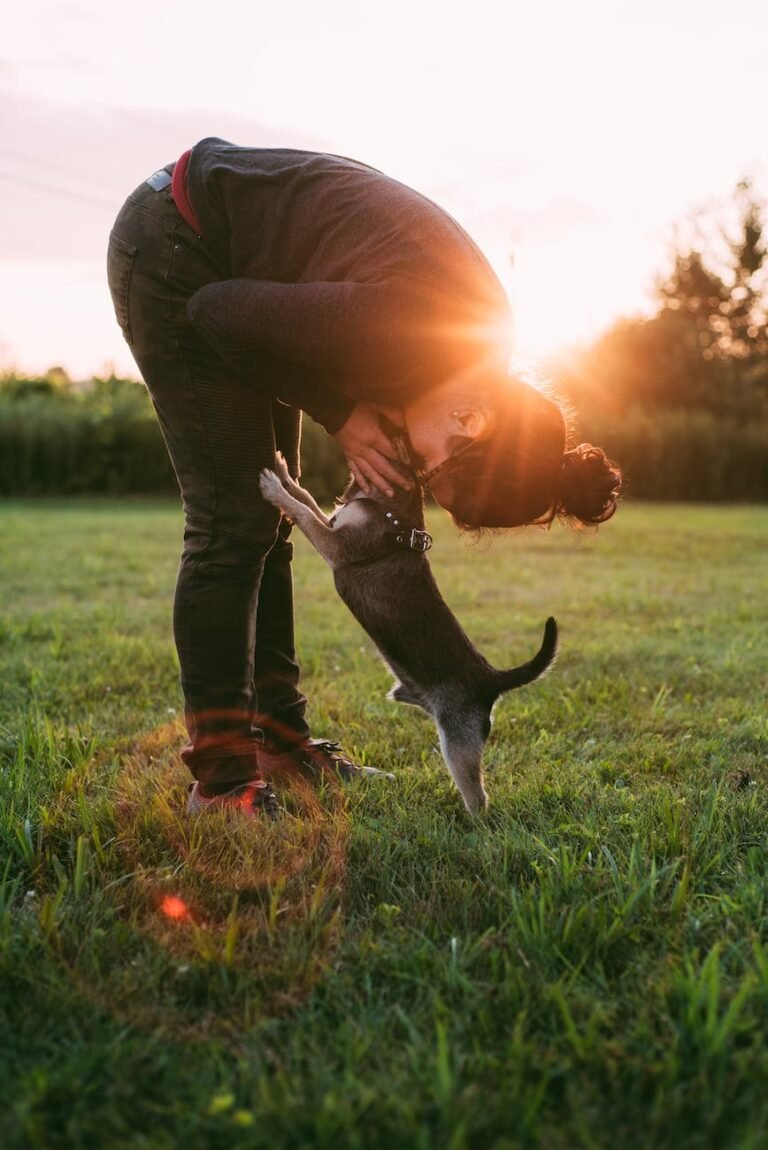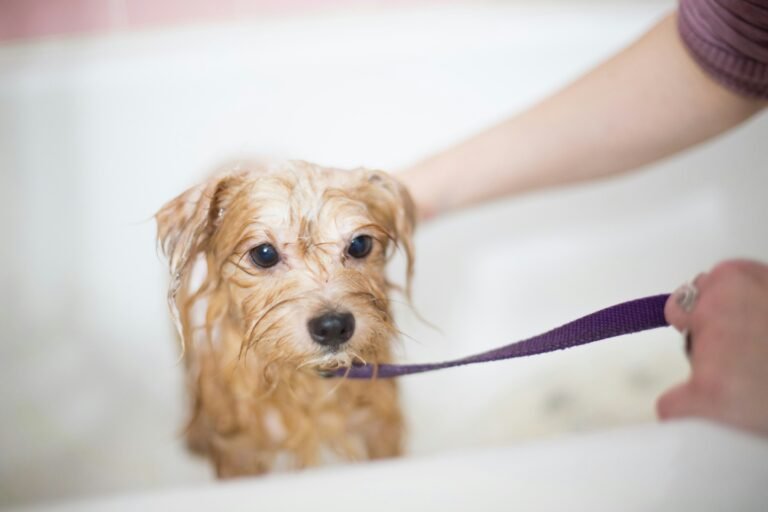How To Keep Your Dog’s Teeth Clean
Having clean teeth is not just important for humans, but for our furry friends as well. Taking care of your dog’s dental hygiene is essential to their overall health and wellbeing. In this article, you will learn some simple yet effective techniques on how to keep your dog’s teeth clean and prevent dental issues. From regular brushing to healthy chew toys, you will discover the best ways to maintain your dog’s pearly whites and ensure a happy, healthy smile.

Regular Brushing
Choosing the Right Toothbrush
When it comes to brushing your dog’s teeth, choosing the right toothbrush is essential. Look for a toothbrush that is specifically designed for dogs, as their bristles and size will be more suitable for their teeth and gums. Avoid using human toothbrushes, as they may be too harsh or big for your dog’s mouth. Opt for a toothbrush with soft bristles to protect their delicate gum tissue.
Using Dog-Friendly Toothpaste
Using toothpaste made specifically for dogs is important for their dental health. Regular human toothpaste can be harmful to dogs when swallowed, as it often contains ingredients that are toxic to them. Dog-friendly toothpaste comes in a variety of flavors that dogs enjoy, making the brushing experience more pleasant for them. It is also designed to be safe to swallow, giving you peace of mind during brushing sessions.
Brushing Techniques
When brushing your dog’s teeth, it’s essential to use the correct brushing techniques to ensure thorough cleaning without causing discomfort. Gently lift their lips to expose their teeth and gums. Hold the toothbrush at a 45-degree angle and use small circular motions to clean each tooth. Pay extra attention to the gum line, as this is where plaque and tartar often accumulate. Start with short brushing sessions and gradually increase the duration as your dog gets used to the process.
Dental Chews and Toys
Types of Dental Chews and Toys
Dental chews and toys can be a great addition to your dog’s oral care routine. There are various types available, including dental bones, chew toys, and ropes designed to help clean their teeth and gums. Look for products that have ridges or grooves, as these can help remove plaque and massage their gums. Some dental chews and toys are also flavored, making them more appealing to your dog and encouraging them to chew.
Benefits of Dental Chews and Toys
Using dental chews and toys can provide several benefits for your dog’s dental health. Chewing on these items helps to scrape away plaque and tartar, preventing the buildup of bacteria that can lead to tooth decay and gum disease. They also help strengthen their jaw muscles and reduce the risk of dental issues such as tooth fractures. Additionally, chewing on dental chews and toys can be a great way to alleviate boredom and reduce destructive chewing behaviors.
Safety Considerations
While dental chews and toys can be beneficial, it’s important to choose products that are safe for your dog. Avoid items that are too hard and could potentially damage their teeth. Always supervise your dog while they are chewing to prevent choking hazards or any accidents. Check the manufacturer’s instructions for appropriate sizing to ensure the chew or toy is suitable for your dog’s breed and size. If you notice any signs of wear or breakage, replace the item to prevent ingestion of small parts.
Healthy Diet and Nutrition
Importance of a Balanced Diet
Maintaining a balanced diet is crucial for your dog’s overall health, including their dental well-being. Proper nutrition contributes to strong teeth and gums, as well as a healthy immune system. Ensure that your dog’s diet includes all the essential nutrients, including proteins, carbohydrates, fats, vitamins, and minerals. Consult with your veterinarian to determine the best food options for your dog’s specific needs and consider their dental health when selecting their diet.
Types of Food for Dental Health
Certain types of food can promote dental health in dogs. Dry kibble is often recommended over wet food, as the chewing action required to eat it helps scrape away plaque and tartar. Some brands also offer dental diets that have been specifically formulated to help reduce tartar buildup. Additionally, including crunchy fruits and vegetables, such as carrots or apples, can contribute to oral hygiene by naturally cleaning their teeth and stimulating saliva production.
Avoiding Food that Harms Teeth
Just as there are foods that can benefit your dog’s dental health, there are also foods that can harm their teeth. Avoid feeding your dog sugary foods and treats, as sugar can contribute to the development of cavities and dental decay. Hard, excessive chew treats such as bones or antlers can lead to broken teeth or other dental injuries. Additionally, avoid feeding your dog human foods that are toxic to them, such as chocolate, grapes, or onions, as these can have severe adverse effects on their dental and overall health.
Regular Dental Check-ups
Finding a Good Veterinarian
Finding a reputable and experienced veterinarian is essential for your dog’s dental care. Look for a veterinarian who specializes in dental health or has extensive knowledge in the field. Seek recommendations from trusted sources, such as friends, family, or fellow dog owners, and research online reviews to gauge their reputation. Visit the veterinary clinic beforehand to assess their facilities and ensure they have the necessary equipment for dental examinations and treatments.
Frequency of Dental Check-ups
Regular dental check-ups are important to monitor your dog’s oral health and detect any potential issues early on. The frequency of these check-ups may vary depending on your dog’s age, breed, and overall dental condition. In general, it is recommended to schedule a dental examination at least once a year, but certain dogs may require more frequent visits. Your veterinarian will be able to provide guidance on the appropriate check-up schedule for your dog.
Professional Teeth Cleaning
Professional teeth cleaning, also known as a dental prophylaxis, is a vital aspect of your dog’s dental care. During this procedure, your dog will be placed under anesthesia to ensure a thorough cleaning can be performed without causing stress or discomfort. The veterinarian will remove plaque and tartar from the teeth, polish them to reduce the risk of future buildup, and examine the gums for any signs of inflammation or infection. Regular professional teeth cleaning can help prevent serious dental issues and maintain your dog’s oral health.
Routine Mouth Inspections
Detecting Signs of Dental Issues
Performing routine mouth inspections is an excellent way to detect any potential dental issues in your dog. Watch for signs such as bad breath, swollen gums, excessive drooling, or difficulty eating. These may indicate dental problems such as gum disease, tooth decay, or oral infections. If you notice any abnormalities or are unsure about your dog’s oral health, consult with your veterinarian for a thorough examination and appropriate treatment.
Examining Teeth and Gums
When inspecting your dog’s mouth, gently lift their lips to examine their teeth and gums. Look for any discoloration, broken or loose teeth, or signs of tartar buildup. Healthy teeth should be clean, white, and free from any visible damage. The gums should be pink and firm, without any redness, swelling, or bleeding. If you notice any abnormalities, contact your veterinarian for further evaluation and advice.
Looking for Abnormalities
Along with examining the teeth and gums, look for any abnormalities in your dog’s mouth. This includes checking the roof of their mouth, the tongue, and the inside of their cheeks. Look for any growths, sores, or unusual lumps. If you notice anything unusual, it is important to have it checked by your veterinarian, as these could be signs of more serious oral health issues or other health concerns.
Avoiding Harmful Habits
Discouraging Chewing on Hard Objects
Chewing on hard objects such as rocks, hard toys, or sticks can cause dental injuries in dogs. Encourage your dog to chew on appropriate chew toys and provide them with a variety of safe and durable options. Be attentive during walks or playtime to prevent them from picking up potentially dangerous objects. Redirect their attention to suitable items whenever you catch them attempting to chew on inappropriate objects.
Preventing Excessive Snacking
Excessive snacking, particularly on sugary or starchy treats, can contribute to the development of dental issues in dogs. Limit the number of treats your dog receives and choose healthy, teeth-friendly options. Opt for dental chews or treats that have been specifically designed to promote oral health. You can also incorporate occasional dental treats that help clean their teeth while satisfying their need for a tasty reward.
Avoiding Harmful Substances
Certain substances can have severe adverse effects on your dog’s dental health. Avoid exposing them to tobacco smoke, as it can contribute to oral infections and gum disease. Keep cleaning products, especially those containing harmful chemicals, out of your dog’s reach. Antifreeze, in particular, is extremely toxic to dogs and can cause serious damage to their teeth and internal organs if ingested. Taking necessary precautions to prevent exposure to harmful substances is crucial in safeguarding your dog’s dental well-being.
Home Remedies and Natural Treatments
Using Coconut Oil for Dental Health
Coconut oil can be used as a natural remedy to promote your dog’s dental health. Its antibacterial and anti-inflammatory properties help combat plaque, tartar, and gum infections. You can introduce coconut oil to your dog’s dental care routine by applying a small amount to their toothbrush or rubbing it directly on their gums. Remember to use a small amount, as excessive intake of coconut oil can lead to digestive issues. Consult your veterinarian for specific recommendations on using coconut oil for your dog’s dental care.
Chamomile for Gum Inflammation
Chamomile is known for its calming and anti-inflammatory properties, and it can also be beneficial for your dog’s gum health. Brew a weak chamomile tea and allow it to cool before using it as a mouth rinse for your dog. Gently swish the chamomile tea in their mouth or apply it to their gums using a soft cloth or cotton swab. This can help soothe gum inflammation and promote healing. However, it’s important to consult your veterinarian before using any natural remedies to ensure they are suitable for your dog’s specific needs.
Herbal Mouthwashes for Bad Breath
If your dog suffers from bad breath, herbal mouthwashes can help freshen their breath naturally. Herbal mouthwashes made from ingredients such as peppermint or parsley can help combat bacteria and neutralize odors. Dilute the mouthwash with water and use it to rinse your dog’s mouth or apply it to their teeth and gums using a soft cloth or cotton swab. Remember to use herbal mouthwashes designed specifically for dogs, as human products may contain ingredients that are toxic to them.
Water Additives and Dental Rinses
Benefits of Water Additives
Water additives can be a convenient way to improve your dog’s dental health. These additives are typically formulated with ingredients that help fight plaque and tartar buildup, reduce bad breath, and promote healthier gums. Simply add the recommended amount of the water additive to your dog’s water dish, and as they drink, the additive will help freshen their breath and work to improve their dental hygiene.
Using Dental Rinses Properly
Dental rinses are another effective method to maintain your dog’s oral health. These rinses are typically applied directly to your dog’s teeth and gums using a cotton swab or soft cloth. They contain ingredients such as chlorhexidine or enzymes that can help reduce plaque, control bacteria, and freshen breath. It’s essential to follow the manufacturer’s instructions carefully and consult your veterinarian for specific recommendations on using dental rinses for your dog.
Choosing the Right Products
When selecting water additives or dental rinses, it’s important to choose products that are formulated specifically for dogs. Avoid using human oral care products, as they can contain ingredients that are harmful when swallowed or ingested by dogs. Read the labels carefully to ensure that the products are safe for your dog’s oral health and adhere to the recommended dosage. Consult with your veterinarian if you have any concerns or questions about choosing the right products for your dog.
Alternative Dental Care Options
Professional Dental Scaling
Professional dental scaling is a more intensive dental care option, typically performed under general anesthesia. During this procedure, a veterinarian or veterinary dentist will clean your dog’s teeth thoroughly, removing plaque, tartar, and other debris both above and below the gum line. This thorough cleaning helps prevent the development of dental disease and promotes healthier teeth and gums. Professional dental scaling is typically recommended for dogs with severe dental issues or as a preventive measure in older dogs.
Orthodontic Treatment for Misaligned Teeth
Misaligned teeth can cause various dental problems for dogs, including overcrowding, plaque buildup, and gum irritation. Orthodontic treatment may be necessary to correct these issues and improve your dog’s oral health. Braces and other orthodontic appliances can be used to gradually shift the teeth into proper alignment, reducing the risk of future dental issues. Consult with a veterinary dentist or an orthodontist who specializes in animal dental care to determine if orthodontic treatment is necessary for your dog.
Anesthesia-Free Dental Cleaning
Anesthesia-free dental cleaning is a non-invasive dental care option that involves scaling and polishing your dog’s teeth without the need for anesthesia. This procedure is typically performed by a qualified veterinarian or dental technician and can help maintain your dog’s dental hygiene. Anesthesia-free dental cleaning may be suitable for dogs who cannot undergo anesthesia due to health concerns or as an interim solution between professional dental cleanings. However, it’s important to note that it may not provide as thorough of a cleaning as a professional dental scaling performed under anesthesia.
Training and Behavior Modification
Teaching Your Dog to Enjoy Teeth Brushing
Training your dog to enjoy teeth brushing can be a gradual process that requires patience and positive reinforcement. Start by introducing them to the toothbrush and toothpaste gradually, allowing them to sniff and taste them. Reward them with praise, treats, or playtime for positive behavior during the process. Gradually move on to touching their teeth and gums with the toothbrush, using plenty of positive reinforcement. Take it slow and make the experience enjoyable for your dog, associating it with positive experiences.
Addressing Dental Care Resistance
Some dogs may show resistance or anxiety when it comes to dental care. To address this, it’s important to understand the underlying cause of their resistance. It could be due to previous negative experiences, discomfort, or fear. Consult with a professional dog trainer or behaviorist to help you develop a plan to address their resistance. They can guide you in using positive reinforcement techniques, desensitization exercises, and behavior modification to gradually overcome their fear or anxiety.
Reward-Based Training Methods
Reward-based training methods are highly effective when it comes to teaching your dog good dental care habits. Use treats, praise, and positive reinforcement to reward your dog for positive behavior during brushing or other dental care activities. Associating these activities with positive experiences will make your dog more willing to participate. Be consistent in your training and gradually increase the difficulty level as your dog becomes more comfortable. Remember to always use rewards that are appropriate for your dog’s dietary needs and dentist-approved treats.
In conclusion, keeping your dog’s teeth clean is crucial for their overall health and well-being. Regular brushing, using dental chews and toys, maintaining a healthy diet, and scheduling routine dental check-ups are all essential components of a comprehensive dental care routine. By implementing these practices and using alternative dental care options when necessary, you can help prevent dental issues and ensure that your furry friend enjoys a lifetime of good oral health. Remember, always consult with your veterinarian for specific recommendations and guidance tailored to your dog’s individual needs.







